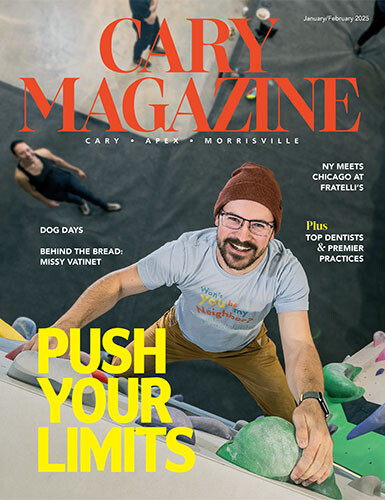Organization & position: Cary High School ESL Academy Teacher, department chair for ESL; North Carolina Society of Hispanic Professionals co-founder and board member
Education: N.C. State University, bachelor’s degree in Spanish Language and Literature; University of Southern Mississippi, master’s degree in Teaching Languages
Accolades: 2004 Distinguished Alumna, Department of Foreign Languages and Literatures, College of Humanities and Social Sciences, N.C. State; 2000 Teacher of the Year – Smith Elementary
Hometown: Garner
Family: Husband Marco; children: Christian, 30, Caroline, 26
First job: McDonald’s
Surprising fact: It took me two years to get up the courage to drive in Mexico City.
Garner to Mexico City may seem an unlikely path, but for Susan Zárate it instigated a cultural immersion that would become a lifelong passion.
Zárate met her husband, a native of Mexico, while they both attended N.C. State University. Following graduation, the pair moved to Mexico City to start their careers and family.
“The hardest part was driving around Mexico City,” said Zárate. “Cars are everywhere and people drive crazy!”
Zárate experienced the Mexico City school system as a teacher and a parent — teaching fifth- and sixth-grade English and seeing her son begin school. After several years, the family moved back to the Triangle area, but not before Zárate gained a mastery of the Spanish language and a unique perspective of the country’s schools.
“Because I taught, and then my son went to school, I have a really good view of the school system in Mexico,” said Zárate. “It’s neat having that perspective, having actually been a part of it then coming back.”
Zárate put her expertise to work teaching Spanish and English as a Second Language in Wake County Public Schools, where she’s worked for 20 years, first at the elementary level and now at Cary High School.
Zárate describes the proficiency level of students coming into her class as a “zero,” usually a young person who has been in the United States less than a year or has experienced interrupted schooling throughout his childhood.
Enter Zárate’s ESL Academy, a three-hour double period of intensive ESL, the only one of its kind in the county. At the end of a year in the academy, most students are ready to assimilate into a full schedule of traditional subjects. Her classes usually contain about 10 students, giving Zárate the ability to connect with each one.
“I love the interaction with the students. I might get a little bit too close to them, maybe more than other people,” Zárate said. “Because our classes are small, it’s real easy to get to know them on a personal level and their families. And because I speak Spanish, I can translate.
Parents can call me. I give them my number, and they can call me anytime — except after 10.”
Initially, teaching attracted Zárate because of the opportunity it affords to help others. But Zárate wanted to extend her reach beyond the classroom.
“I always had this big concern for my students,” she said. “… I started wondering what was going to happen to them in the upper grades. That started worrying me. … What if they don’t have a person that is going to be there for them?”
Zárate collaborated with her husband, Marco, and connected with two other couples to initiate a support system for Hispanic students. The group founded the North Carolina Society of Hispanic Professionals to promote education among Hispanic students and families and to foster access to higher education.
Their goals?
“To help students out,” Zárate said. “For (students) to understand that they can go on to college and not to be held back, and try to help them find ways to get there.”
The NCSHP, celebrating its 15th anniversary next year, serves the Hispanic community — students, parents and teachers — across the entire state. Its headlining annual event, the Hispanic Educational Summit, brings together nearly 1,000 students, educators, and presenters at the McKimmon Center at N.C. State for a day of inspiring speakers and workshops.
The society’s college scholarship program, teacher training sessions, dropout prevention campaigns, parent informational fair and many other endeavors are executed by a volunteer-based team, on which Zárate plays a key role.
“There are a lot of nights and weekends,” she said. “I’m fine with doing nuts and bolts. It’s whatever needs to be done, wherever we need help.”
At the heart of her work is a passion for students and empowering them to finish high school and go on to college. She encourages all teachers to take the time to get to know their pupils as a fundamental strategy for success.
“If you care for students, they know it,” she said. “They know when you care for them and when you don’t, when you are really interested in them for who they are.”
Zárate has proof in the notes and mementos she keeps on her desk from students gone on, and in the contact list in her phone full of former students and their families.
“One thing you look at is, ‘If this were my child, am I doing the best for that student? Am I doing what I need to be doing?’” she asked. “Because you would want that for your child. You would want the best. And you would want the teacher to do the best they could, be the best teacher they could possibly be.”




